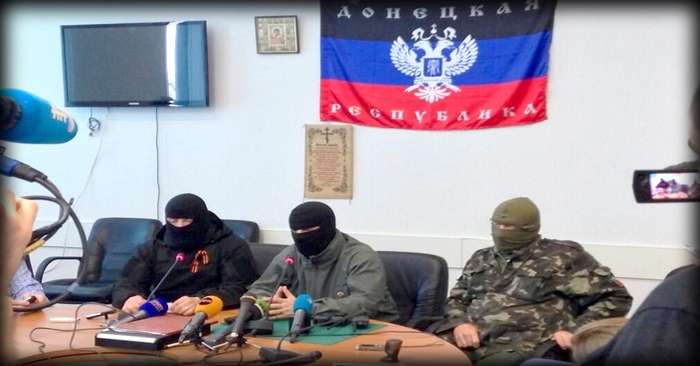Ukraine to generously pay “judges” in Russian-controlled Donbas after shock Constitutional Court judgement

Ukraine’s Constitutional Court has issued a shock judgement overturning major parts of the 2016 judicial reforms. Among other consequences, the judgement will make it all but impossible to stop paying judges who have failed (or refused to take) qualification assessment, as well as those judges who betrayed their oath by working as ‘judges’ for the Russian proxy ‘Donetsk and Luhansk people’s republics’ [DPR, LPR]. The amounts of money involved are high, and in many cases, judges now eligible for substantial backpay payments were involved in handing down overtly unlawful sentences.
The judgement from 18 February 2020 was in response to a submission from the Supreme Court of Ukraine asking about the constitutionality of judicial reforms introduced in 2016.
These reforms had, first of all, dissolved the old Supreme Court, and created a new one, appointing a separate competition for this ‘new Supreme Court’. The idea behind these changes, the DeJure Foundation explains, was that the new procedure would make it possible to clear this highest judicial body from judges of questionable integrity.
However CCU has now revoked the 2016 dissolution of the Supreme Court. This judgement is final, but it does not contain any instructions on the fate of both Supreme Courts. This means, on the one hand, that there is broad legal scope for the decisions that MPs must now make in order to, as ordered by CCU, bring the Law on the Judicial System in accordance with Ukraine’s Constitution. The other side of the coin is, however, that MPs could well come up with a solution which CCU later also finds to be unconstitutional.
Stepan Berko from DeJure explains that there are currently 12 judges in the Supreme Court who refused to retire back in 2016. Now they will be able to begin working in the Supreme Court without needing to take part in any competition and must also be paid backpay for the last four years while they were not able to serve as judges. If they are all transferred to the ‘new’ and, now, the one and only, Supreme Court, that will mean that there are 204 Supreme Court judges, which is more than the maximum number as stipulated by law (200).
While the above is very important, emotions have been particularly aroused over another part of the judgement. CCU also revoked a norm in the 2016 law cancelling the right to life remuneration in the case of judges who had not undergone judge re-attestation. This means that the only judges who cannot now receive substantial monthly payments for life are those very few individuals who were actually dismissed. As Mykhailo Zhernakov, Head of DeJure, pointed out, many judges were spared dismissal, and allowed to simply “retire”. They will presumably also be eligible to backpay for the time they were not paid. So too will those who either chose not to go through the re-attestation procedure or who failed the procedure.
A year ago, civic activists pointed out that 227 judges who had persecuted Maidan activists remained in their posts, and there have been numerous eyebrow-raising rulings reinstating even those judges, like Pavlo Vovk, head of the Kyiv District Court of Appeal, accused of serious judicial corruption. There is certainly always a fine line between punishment for judicial independence (as is now being applied by the right-wing PiS government in neighbouring Poland), and measures to ensure that judges do not breach their oath. Six months after the Revolution of Dignity, the promises to ensure an overhaul of a gravely compromised judicial system now seem even more empty.
There is, as mentioned, one other category of judges whom this judgement will affect. All of those judges who remained in occupied Donbas, and who are now serving the Russian-controlled and unrecognized ‘Donetsk and Luhansk people’s republics’ will now also be entitled to life-long salaries. These may well be the individuals involved in ‘sentencing’ Ukrainian prisoner of war, Bohdan Pantyushenko, 63-year-old academic and religious specialist Ihor Kozlovsky; journalists Stanislav Aseyev and Oleh Halaziuk, and very many others to huge terms of ‘imprisonment’.
<





